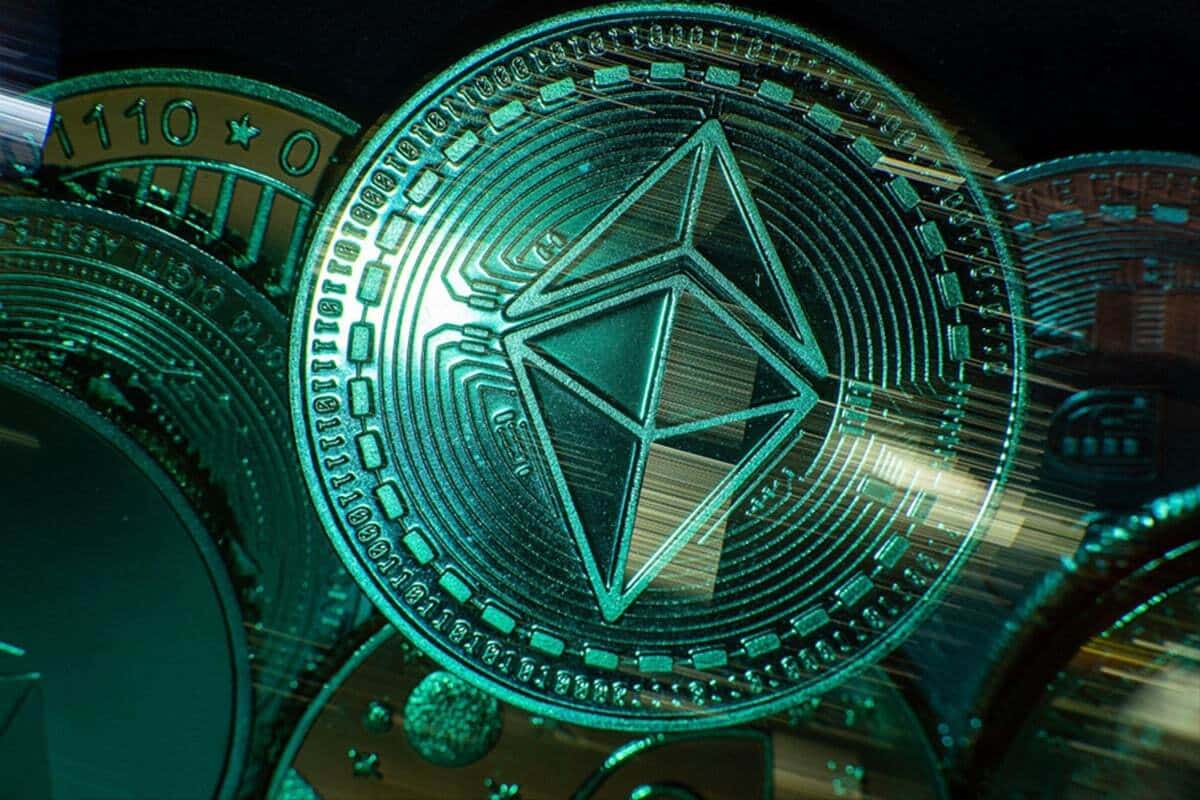Altcoin
Ethereum Network Activity Disappoints After Shanghai Upgrade

[ad_1]
Insights shared by JPMorgan suggest that the Ethereum blockchain network has seen a major downturn in network activity and other on-chain metrics following the Shanghai upgrade in April.
The analysts at JPMorgan pointed out a decline in Ethereum’s daily transactions, daily active addresses, and the total value locked (TVL) in decentralized finance (DeFi) protocols on the network. In a note on Thursday, JPMorgan analysts led by Nikolaos Panigirtzoglou wrote:
“While the shift from proof-of-work to proof-of-stake that resulted from the Merge upgrade meant that the energy consumption for the Ethereum network collapsed by more than 99%, the Ethereum supply is shrinking and staking rose sharply (with the amount of ether staked up by 50% since the Shanghai upgrade), the increase in network activity has been rather disappointing”.

The decline in Ethereum activity indicates that several “bearish forces” that have persisted over the past year. This includes the FTX and Terra incidents, regulatory uncertainties and enforcement actions in the U.S., declining institutional interest in cryptocurrency, and reduced venture capital investment.
JPMorgan analysts believe that this may have had a more substantial impact than the positive effects of the Shanghai upgrade on Ethereum’s network activity. Also, Ethereum has given a dismal price performance against Bitcoin over the last few months.
Price performance was magnificent -18% against #BTC pic.twitter.com/68r88Xgo8I
— James V. Straten (@jimmyvs24) September 22, 2023
Ethereum Enthusiasts Excited About Sharding
The cryptocurrency sector is currently pinning its hopes on the EIP-4844 upgrade, also known as protodanksharding, with the expectation of a significant boost in Ethereum network activity. Nevertheless, the JPMorgan analysts caution that “persistent negative crypto factors continue to pose challenges.”
Protodanksharding represents an initial phase leading towards the eventual adoption of danksharding. Rather than dividing the Ethereum blockchain into numerous shard chains, danksharding introduces data-containing blobs. These are temporary data packets appended to blocks, capable of accommodating more data than the blocks themselves.
Ethereum Community Challenges JPMorgan Observations
Some Ethereum community enthusiasts have raised questions over JPMorgan’s observations. Ethereum enthusiats @MattKunke believes that JPMorgan is just looking at L1 transactions. However, the Ethereum Layer-2 solutions have shown tremendous improvements.
Almost guarantee they just looking at L1 transactions too instead of: https://t.co/RPyE2KggA4
— mattkunke.eth 🦇🔊 (@MattKunke) September 22, 2023
Another concern currently with Ethereum is the massive validator concentration on the network. At present, the network boasts nearly 800,000 active validators, marking a 41% surge since the introduction of the “Shapella” upgrade in April, which facilitated staked ETH withdrawals.
Christine Kim from Galaxy Research said that “Ethereum is getting close to reaching an unsustainable number of active validators. It’s pretty technical, but network “latency” is becoming a key problem”.
Do Ethereum Investors Have to Worry?
The ETH Price has already come under pressure and is trading under $1,600 levels at the press time. However, there’s a likelihood of Ethereum futures ETFs coming to the market by the next month of October. This could prove to be a major catalyst to drive the Ethereum price higher.
The presented content may include the personal opinion of the author and is subject to market condition. Do your market research before investing in cryptocurrencies. The author or the publication does not hold any responsibility for your personal financial loss.
[ad_2]
Source link










✓ Share: